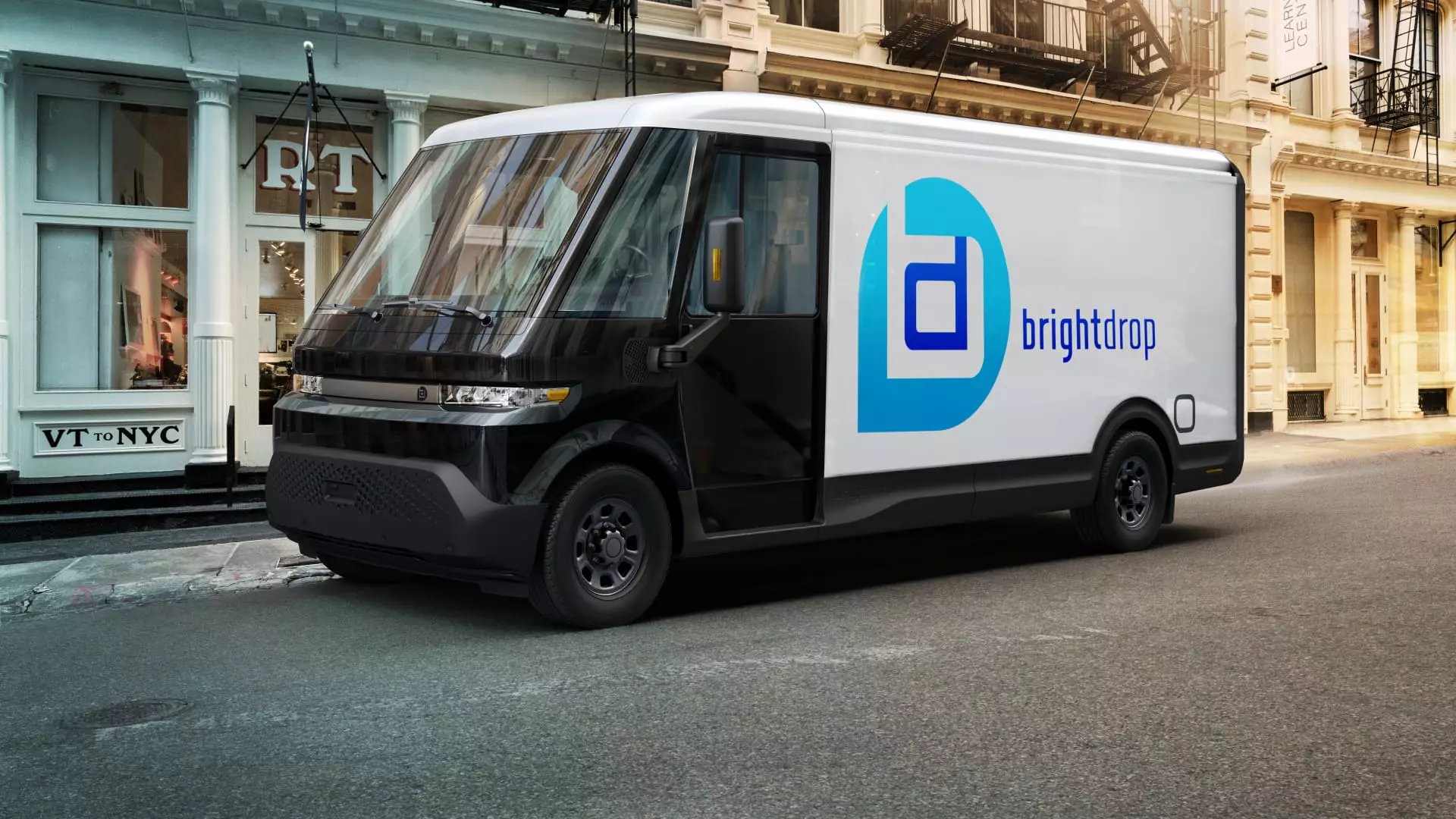In a surprising yet disheartening turn of events, General Motors (GM) has announced significant cuts to its BrightDrop all-electric delivery van production at its CAMI assembly plant in Ontario, Canada. This decision not only highlights the volatile nature of the electric vehicle (EV) market but also underscores the human cost associated with corporate miscalculations. The idling of production, leading to the elimination of 500 jobs, reflects an unsettling reality: ambitious green dreams can rapidly transform into economic nightmares for working families.
Disappointing Dreams of a Green Future
GM’s BrightDrop venture was once heralded as a transformative step for the automaker as it pivoted toward a more sustainable future. Launched in 2021, the subsidiary was initially seen as a beacon of innovation, poised to revolutionize the logistics sector and generate substantial revenue—projected at a staggering $1 billion for 2023. However, with sales reportedly faltering at around just 2,000 units, the enthusiasm has not translated into tangible success. Rather than continuing an optimistic narrative of electrification, GM now faces a harsh reckoning, and the workforce is paying the price.
It is essential to ponder the implications of this downturn. As Lana Payne, president of the Canadian union Unifor, articulated poignantly, this outcome is a “crushing blow” not merely to the immediate workers but also to families and communities that rely on stable employment in an increasingly precarious economy. Our societal responsibility to safeguard these jobs must be scrutinized, especially within the context of a flourishing electric vehicle market that the government and corporations continually tout as the future.
Short-Lasting Solutions in a Complex Landscape
As GM vows to remain committed to the CAMI facility and plans upgrades for the 2026 model year, questions arise about the effectiveness of those statements. Words alone cannot provide security to workers or remedy the immediate impact of job losses. The dissonance between lofty corporate strategies and on-the-ground realities is glaring. Moreover, the discussion around President Trump’s tariffs is a clarion call for dialogue regarding protectionism versus fair market access, particularly in a sector aimed at sustainability and innovation.
With opposing views on tariffs evident, the blame game can become counterproductive. We must critically assess how the broader industry landscape affects EV production, market demand, and job security. Payne’s assertions suggest that the current administration’s policies could hinder growth and job security for Canadian auto workers. If these tariffs truly contribute to the chaos, there is an urgent need to recalibrate these policies in favor of sustainable development without sacrificing the livelihoods tied to this pivotal industry.
Beyond the Numbers: The Human Cost
The ramifications of GM’s decision extend far beyond the confines of economic statistics. Each statistic—the job cuts, the lower sales numbers—represents real lives affected by decisions made in corporate boardrooms. The urgency for governments and corporations to ensure that discussions bring forth actionable solutions can’t be overstated.
Workers deserve to see tangible support from both their employers and the state when undergoing such radical transitions. The intersection of job security with the imperative for sustainability cannot become a battleground for lip service. The challenge lies in implementing practical measures that can address these employment concerns while fostering innovation in the electric vehicle sector.
In a world striving for sustainability, it is crucial to ensure that we don’t unleash a wave of economic distress under the banner of progress. The road ahead must prioritize not just ambitious goals but the people behind them, making sure they are not left stranded on the sidelines of the electric future.


Leave a Reply